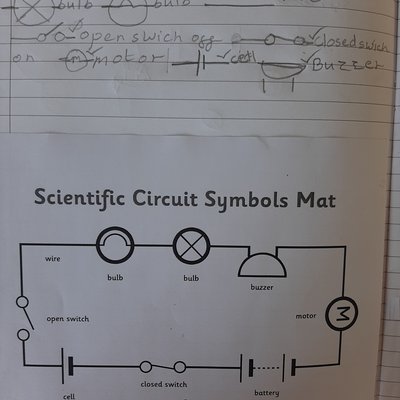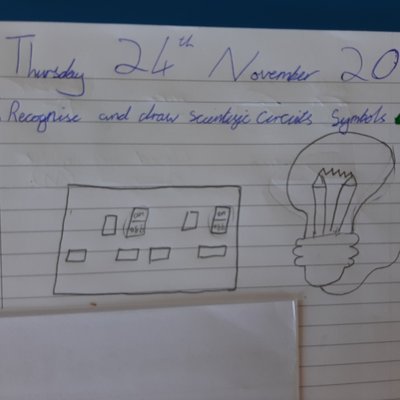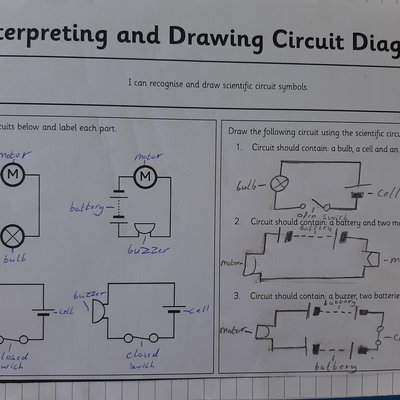Science Showcase
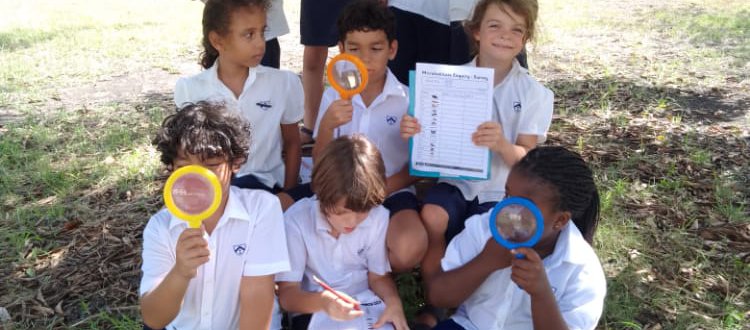
25th November 2022
Have a look at all the investigational science we have been doing!
Creche
In Science the crèche children have been exploring the environment. We went on a World outdoor learning day where we went on a nature walk and fed ducks.
We experiment and explore the sandpit and make various things, such as cake, mountains and rivers.
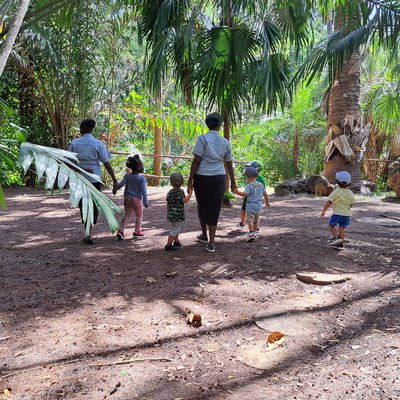
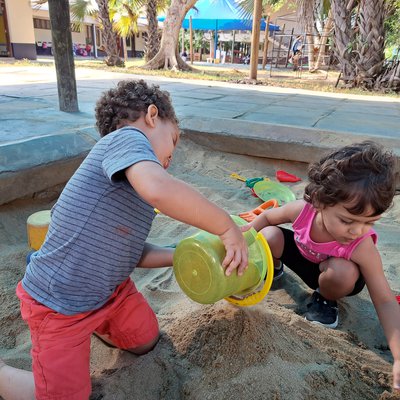
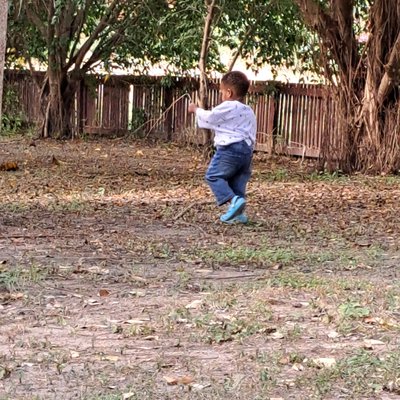
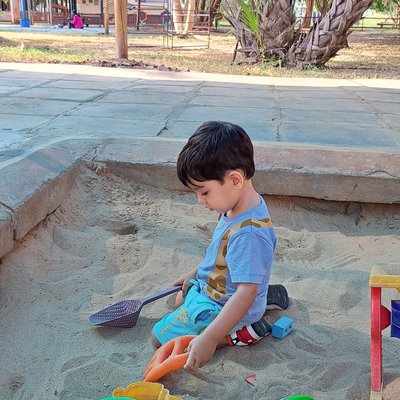
FS1
During Rhyme Week, the children learnt the rhyme, '5 little speckled frogs'. We create a small world frog area where the children learnt about what frogs like to eat and that they like to rest on lily pads. The children enjoyed singing the rhyme while playing with the frogs sitting on the sticks that we used as pretend logs and paper lily pads. The children then made paper frogs.
Miss. Grace N
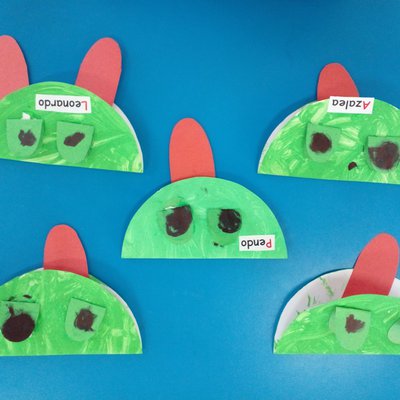
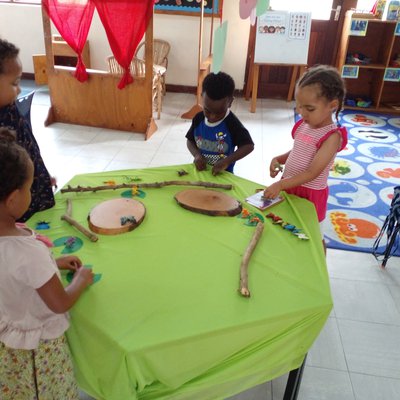
FS2
FS2 have been busy this term with the EYFS garden. They have planted sunflowers, eggplant and spinach. Each week one of the EYFS classes have been in charge of looking after the garden. With Mr Evans' help they have enjoyed watching the garden grow. Last week we harvested the eggplant, cut up, cooked and tried eating roasted eggplant. Next week will be time to try the spinach.

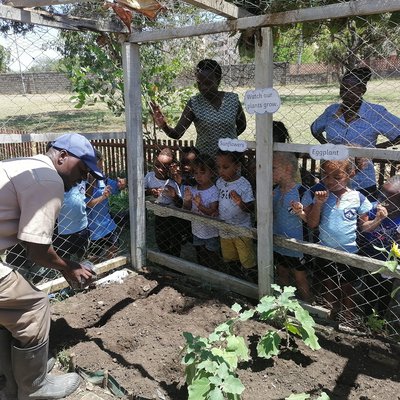
Year 1
As part of our unit Plants, we have been studying the role that the roots, stem and leaves play in plant growth. We conducted an experiment using celery to test the hypothesis that ‘stems transport water from the roots to the leaves”. Our results were very interesting and appear to prove our hypothesis.
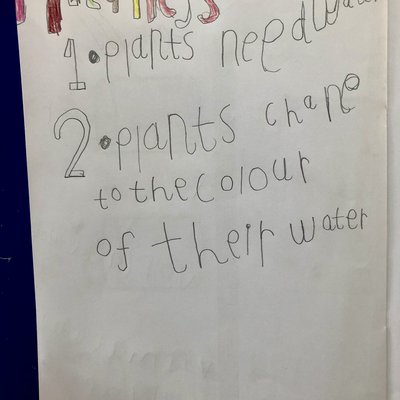
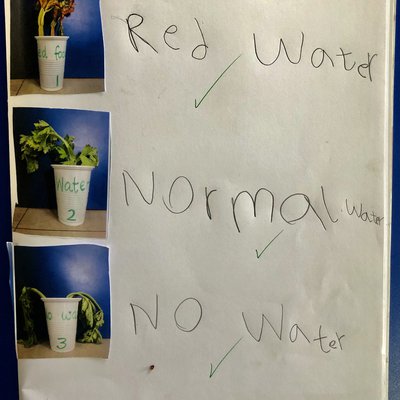
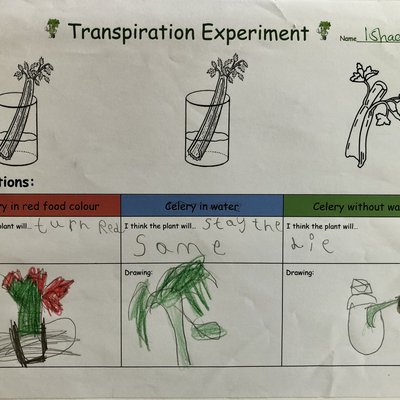
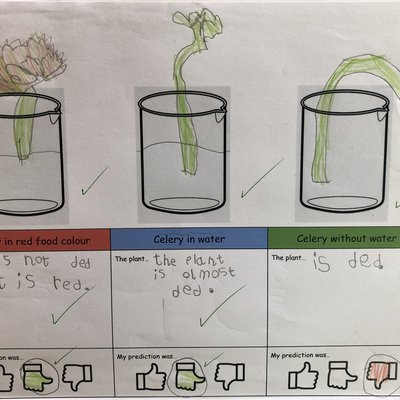
Year 2
In Science this half of term, we have been learning about a variety of habitats and the plants and animals that live there. TWe have also been learning how to tell the difference between things that are living, dead and things that have never been alive.
We have been excitedly exploring the microhabitats in our greater school habitats and the minibeasts that live there. We are also learning how to gather and record data to help in
answering questions by investigating the preferred habitat of minibeasts in microhabitats around our school.
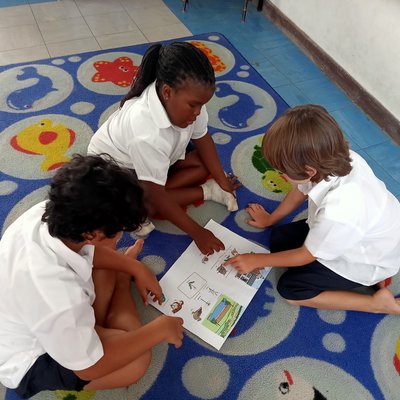
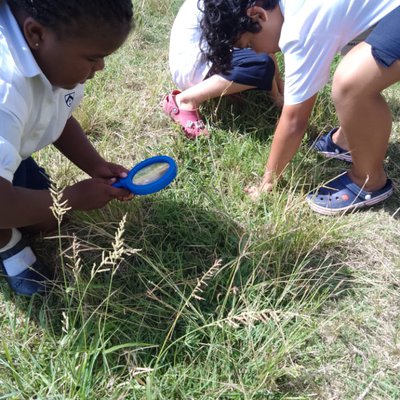
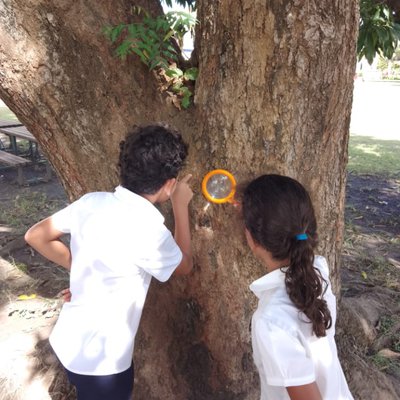
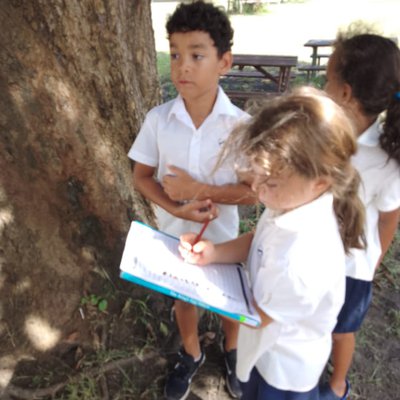
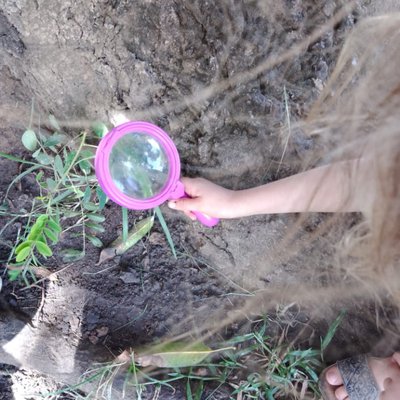
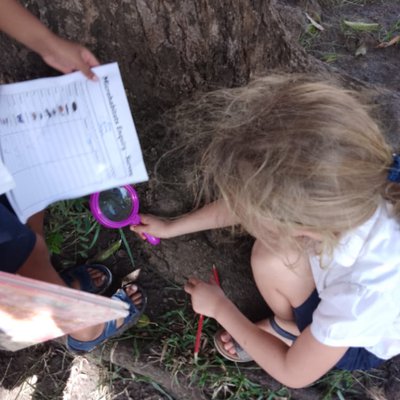
Year 3
The Year 3 children are investigating how the human skeleton supports movement. To do this, they will conduct an experiment to explore the question, ‘can people with longer femurs jump further?’.
So far in this process, the students have made their predictions, considered the constant and independent variables in their experiments and are now well prepared to conduct these experiments in their next lesson when they will record their findings and will also have to consider ways in which to ensure their tests are fair.
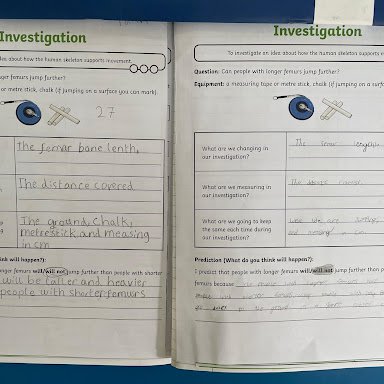
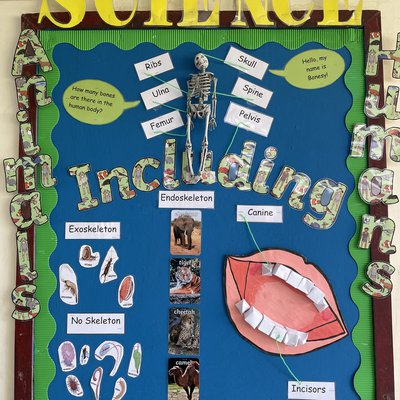
Year 4
We carried out an investigation to find out the liquid that was most harmful to our teeth. We placed a boiled egg in different liquids over a period of more than 48 hours then observed the changes on the shell. The children were excited to make and record their observations.
Year 4.
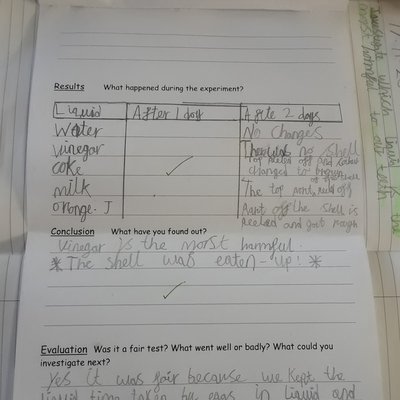
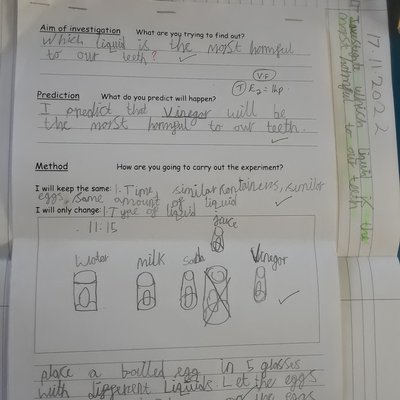
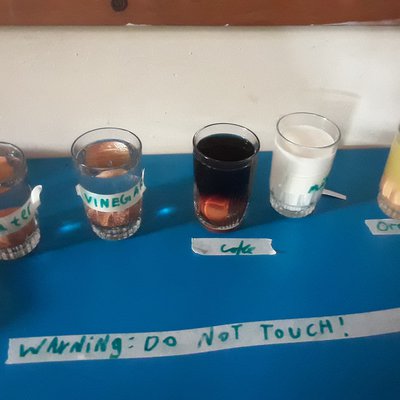
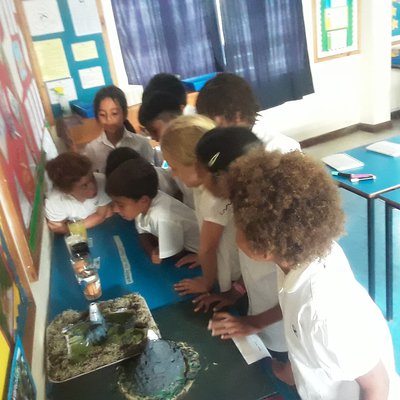
Year 5
Year 5 have been looking at the unit ‘ANIMALS INCLUDING HUMANS’. They described and compared different life cycles of animals. They enjoyed investigating the life process of reproduction in plants.
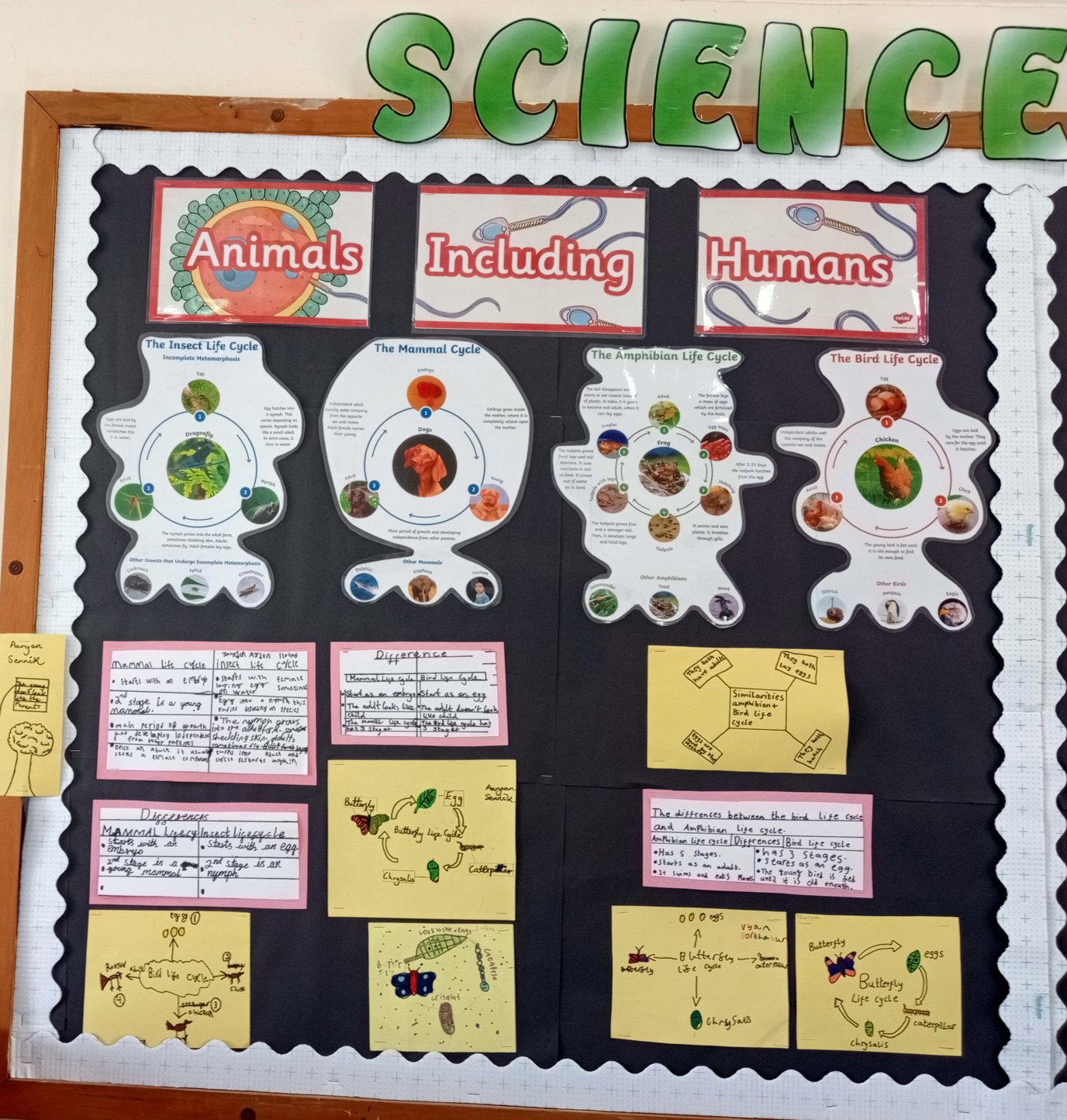
Year 6
The Y6 topic this half term is ‘Electricity’. This week, we have been learning the correct scientific symbols for the different components and drawing complete circuits in readiness for our experiments next week, building different circuits and asking questions like: what happens to the bulb if you change the voltage? What happens if you change the wire length? How can I make the buzzer louder? What will happen if I add another bulb to the circuit?
Mrs Meyer
